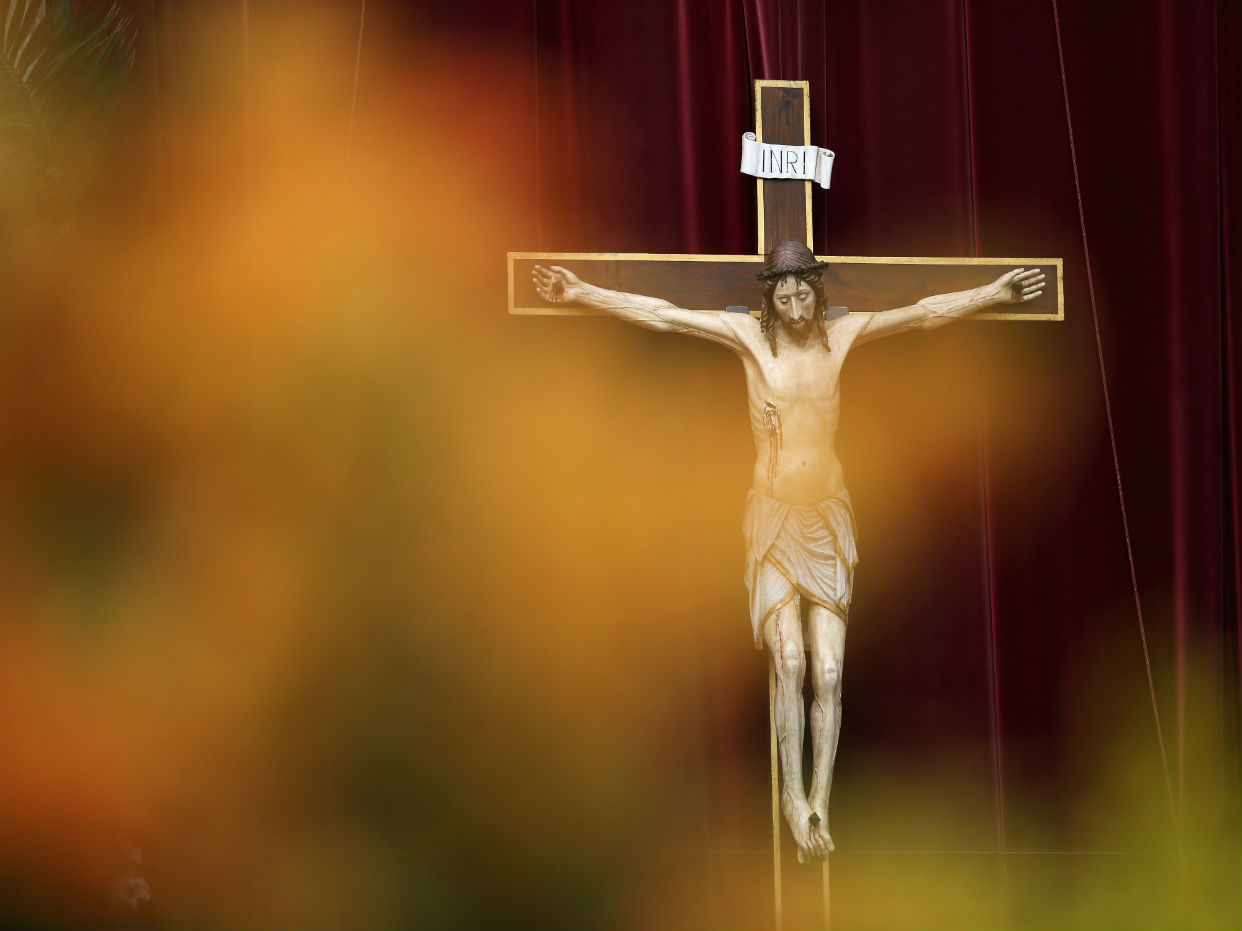Bavaria to make crosses mandatory in public buildings
Controversial law comes amid backlash against arrival of Muslim migrants

A free daily email with the biggest news stories of the day – and the best features from TheWeek.com
You are now subscribed
Your newsletter sign-up was successful
As of tomorrow, police stations, courts and government offices in the German state of Bavaria will be legally required to display a Christian-style cross, under new legislation aimed at preserving “Bavarian identity”.
The law, introduced by state premier Markus Soder, a member of the conservative CSU party, has proved controversial. Althogh opinion polls show that a majority of Bavarians support the proposal, critics have accused the state government of pandering to the far-right and undermining the principles of secular government.
Soder and his supporters say the cross “is not a sign of religion”, but instead a symbol of Bavaria’s heritage.
The Week
Escape your echo chamber. Get the facts behind the news, plus analysis from multiple perspectives.

Sign up for The Week's Free Newsletters
From our morning news briefing to a weekly Good News Newsletter, get the best of The Week delivered directly to your inbox.
From our morning news briefing to a weekly Good News Newsletter, get the best of The Week delivered directly to your inbox.
Christian Moser, mayor of the Bavarian town of Deggendorf, echoed Söder’s sentiment. “This is about culture, not religion,” he told The New York Times, adding that separation of church and state remained a “given”.
In 2011, the European Court of Human Rights ruled that displaying a cross in a public building was “passive” act, and not necessarily a violation of religious freedom.
Many commentators have observed that the push for the law reflects a growing hostility to Germany’s Muslim population, recently swelled by the arrival of migrants and asylum seekers from the Middle East and Africa.
Church attendance may be declining in Germany as in the rest of western Europe, “but religious symbols are making a powerful comeback as part of the simmering culture wars”, says The New York Times.
A free daily email with the biggest news stories of the day – and the best features from TheWeek.com
The latest evidence of a rising tide of Islamophobia can be found in a Pew Research study released on Tuesday which found that a third of Germans would not accept a Muslim into their family.
Resistance was most pronounced among Catholic Germans, more than half of whom said they would not accept a Muslim family member, compared to 16% of Protestants. Bavaria is one of two German states where the majority of residents identify as Catholic.
Perhaps surprisingly, however, much of the resistance to Bavaria’s mandatory cross law “has come from Catholic organisations and the church itself”, Deutsche Welle reports.
Hans Bauernfeind, the dean of the pastoral office at St Stephen's Cathedral in Passau, accused politicians of attempting to strip the crucifix of its inherent Christian meaning to serve their own agenda.
“The cross has its own message,” he told Deutsche Welle. “That should not be used for other purposes, be they political, social or cultural.”
-
 Political cartoons for February 15
Political cartoons for February 15Cartoons Sunday's political cartoons include political ventriloquism, Europe in the middle, and more
-
 The broken water companies failing England and Wales
The broken water companies failing England and WalesExplainer With rising bills, deteriorating river health and a lack of investment, regulators face an uphill battle to stabilise the industry
-
 A thrilling foodie city in northern Japan
A thrilling foodie city in northern JapanThe Week Recommends The food scene here is ‘unspoilt’ and ‘fun’
-
 Epstein files topple law CEO, roil UK government
Epstein files topple law CEO, roil UK governmentSpeed Read Peter Mandelson, Britain’s former ambassador to the US, is caught up in the scandal
-
 Iran and US prepare to meet after skirmishes
Iran and US prepare to meet after skirmishesSpeed Read The incident comes amid heightened tensions in the Middle East
-
 Israel retrieves final hostage’s body from Gaza
Israel retrieves final hostage’s body from GazaSpeed Read The 24-year-old police officer was killed during the initial Hamas attack
-
 China’s Xi targets top general in growing purge
China’s Xi targets top general in growing purgeSpeed Read Zhang Youxia is being investigated over ‘grave violations’ of the law
-
 Panama and Canada are negotiating over a crucial copper mine
Panama and Canada are negotiating over a crucial copper mineIn the Spotlight Panama is set to make a final decision on the mine this summer
-
 Why Greenland’s natural resources are nearly impossible to mine
Why Greenland’s natural resources are nearly impossible to mineThe Explainer The country’s natural landscape makes the task extremely difficult
-
 Iran cuts internet as protests escalate
Iran cuts internet as protests escalateSpeed Reada Government buildings across the country have been set on fire
-
 US nabs ‘shadow’ tanker claimed by Russia
US nabs ‘shadow’ tanker claimed by RussiaSpeed Read The ship was one of two vessels seized by the US military